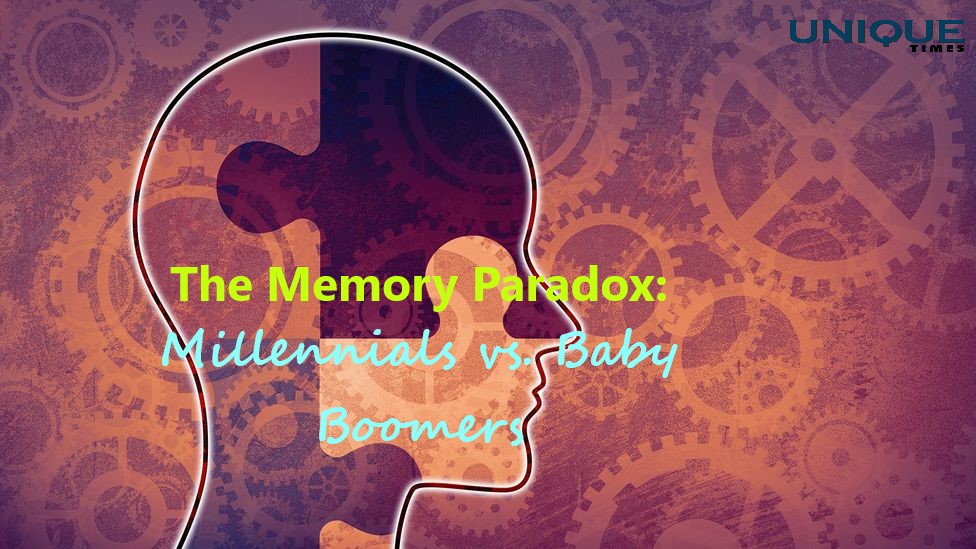Unveiling the Memory Paradox: Millennials and the Surprising Forgetfulness

As generations progress and technology advances, various stereotypes have emerged, often attributed to different age groups. One such perception is that millennials (aged 18 to 34) are more forgetful than their older counterparts, the baby boomers. However, beneath this seemingly straightforward assumption lies a fascinating and unexpected memory paradox. In this blog, we delve into the intriguing world of memory and explore the surprising truth behind the memory patterns of millennials and baby boomers.
The Memory Paradox Unveiled
The memory paradox challenges conventional wisdom, as it contradicts the notion that younger minds are inherently sharper and more capable of retaining information. Surprisingly, studies have shown that millennials tend to display higher levels of forgetfulness than baby boomers in certain aspects of memory.
The Digital Age and Cognitive Shift
In the digital age, where information is readily available at our fingertips, some argue that the way we process and retain information has undergone a profound shift. With constant access to smartphones and technology, the brain might prioritize different types of memory, leading to variations in recall abilities between generations.
The Multitasking Dilemma
The prevalence of multitasking in the digital era could also play a role in the memory paradox. While millennials are often praised for their ability to juggle various tasks simultaneously, this habit may inadvertently affect their capacity to retain information deeply.
Experience vs. Information Overload
Baby boomers, with their wealth of life experiences, might have developed stronger memory skills over time. Conversely, millennials, who grew up in a world of information overload, might struggle with prioritizing and consolidating memories amid the vast amount of data they encounter daily.
Memory as a Dynamic Process
Understanding memory as a dynamic and ever-changing process is crucial to appreciating the memory paradox. Our memory is malleable and influenced by numerous factors, including lifestyle, cognitive engagement, stress levels, and sleep quality.
Embracing Cognitive Diversity
Rather than viewing the memory paradox as a generational competition, embracing cognitive diversity can foster mutual learning and appreciation. Each generation brings unique strengths and perspectives, and recognizing these differences can lead to better collaboration and intergenerational understanding.
The Path Forward: Nurturing Memory Skills
Regardless of generational differences, nurturing memory skills is essential for maintaining cognitive vitality throughout life. Engaging in memory exercises, adopting effective learning techniques, managing stress, and prioritizing quality sleep are vital for memory health across all ages.
Conclusion
The memory paradox challenges preconceived notions about memory capabilities across generations. Millennials’ seemingly forgetful tendencies compared to baby boomers demonstrate the complexity and adaptability of the human brain in the face of evolving lifestyles and technology. As we embrace this paradox, we recognize that memory is not solely a product of age but a multifaceted and ever-evolving aspect of the human mind. By fostering a culture of mutual learning and appreciation, we can celebrate cognitive diversity and collectively work towards nurturing memory skills for enhanced cognitive well-being, regardless of generational identity.
Picture Courtesy: Google/images are subject to copyright








